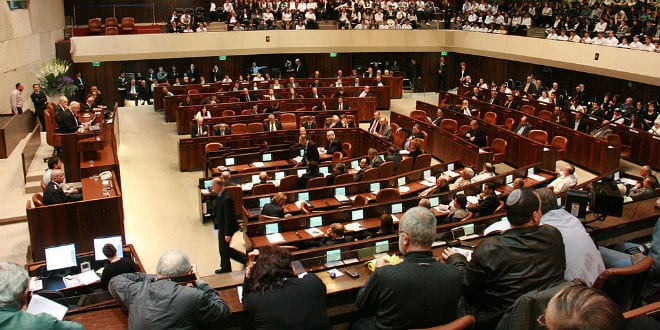With Israel’s third parliamentary elections in less than a year due to be held on March 2, 202 – at a cost to the economy of many billions of shekels – it’s not surprising that the public’s confidence in the Knesset and the political parties is at the lowest ebb. The man/woman in the street doesn’t have to be told this by an academic survey – they feel it – but the country’s elected leaders should be reminded of the damage to public faith in the system that they have wrought.
The current political impasse, which, unbelievably, threatens to trigger a fourth bout of elections, caused 63% of the Israeli public to distrust the political system in 2019. Compare this to 56% of the public who expressed very little confidence in politics, politicians and political institutions in 2018.
This comprises data from the annual public sector performance index of the University of Haifa, which has published such them since 2001. The latest figures were measured between June and August 2019, in the gap between the election campaign and the 21st Knesset. The figures have probably gotten worse since then.
“We are clearly in a decline in public confidence in the Knesset since 2013, with the level of confidence in 2019 being the lowest in the last 11 years. Such a low level of confidence is not surprising given the impasse in the political system in the past year, but it may also project a lack of public confidence in the democratic process and its ability to promote the public’s social welfare,” the study’s authors said.
The index published since 2001 was compiled by Prof. Eran Vigoda-Gadot, Prof. Shlomo Mizrahi, Dr. Rotem Miller-More Atias and Dr. Nissim Cohen, director pf the Center for Management and Policy at the University of Haifa’s School of Political Science.
They examined public trust in a large number of institutions and public positions on a scale of one to five (1 representing a very low level of confidence to 5, the highest level). The current survey included 602 citizens, representing a representative sample of all levels of the adult population in Israel, both Jews and non-Jews. The survey was held between the election campaign for the 21st Knesset in April and the election for the 22nd Knesset in September.
The level of confidence in the Knesset is low and even declining compared to the past year. In 2019, 63% of the public expressed little or very little confidence in the Knesset and about six percent expressed great or very much confidence (the rest expressed moderate confidence), compared with 56% who expressed little or no confidence.
The percentage of people who expressed great confidence in politics and politicians remained the same between 2018 and 2019. There is a clear downward trend since 2013 and the lowest level of confidence since 2008.
An even sharper decline was recorded in the confidence level of the parties. Fully 67% of the public expressed little or no confidence in them, compared with four percent who expressed great or very much confidence. Last year, 57% expressed little or no confidence and six percent expressed great or very much confidence.
The level of confidence in the Knesset and the parties in 2013 was relatively high, showing that the Israeli public knew how to trust the political system – or at least give it more support – in the past.
A further deterioration could dangerously reduce respect for the law, democracy and social solidarity, the authors warned.
Politicians, parties and leaders – please take note!
Source: Israel in the News

